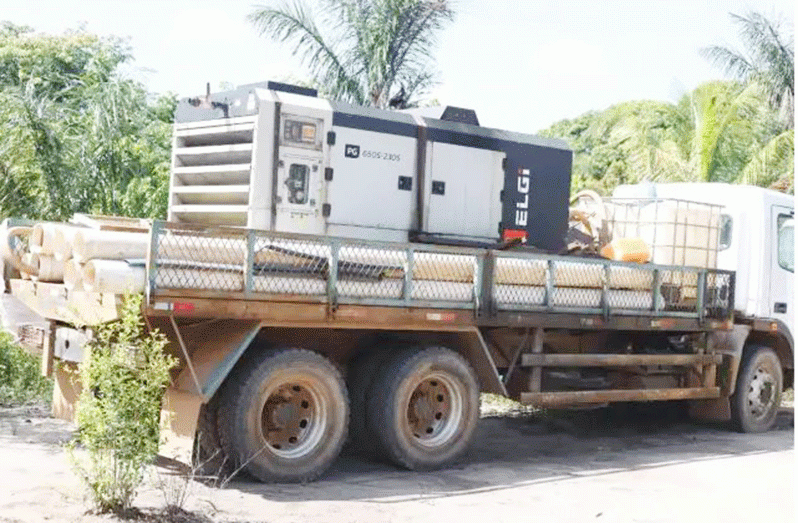A TOTAL of 378 Aracuru residents in Whitewater, Mabaruma, Region One, will gain initial access to clean drinking water, through the installation of a new well.
The well drilling operation, to be undertaken by Guyana Water Incorporated (GWI), has a scheduled completion period of six weeks. The community is currently receiving water from a hand-dug well.
This endeavour aligns with President Dr. Mohamed Irfaan Ali’s dedication to ensuring the provision of clean, easily accessible water to the residents and marks a significant stride in that direction.
Minister of Housing and Water, Collin Croal, visited the well location on Thursday, along with Toshao of Whitewater, Deon Adams and regional officials.
Relating to the project, Minister Croal said, “We had committed to drilling [a well] at Wauna, that is to help on the Mabaruma township. And we committed, then, that the rig would come as soon as it was finished in Wauna.”
Now that the rig has arrived in the community, the housing and water minister highlighted that preparatory works, including land clearing, are being executed to set the rig to commence the drilling of the well.
While giving an overview of the well’s depth, Minister Croal explained that “it normally goes as far as we can find the water. We are very optimistic because the terrain here is not out like Mabaruma Central. And there are other shallow wells here.”
Notably, the well at Wauna is expected to be commissioned shortly.
This year, various communities are benefitting from new water distribution systems in Region One, including Manawarin, Waramuri, Haimacabra, Kamwatta, Koko, Parakeeis, Cabora, Karaburi, Wallaba, Santa Rosa, Whitewater, Yarakita, Kamwatta and Black Water Savannah.
The government intends to drill an additional 40 new wells in Regions One, Two, Seven, Eight, and Nine in 2024, in order to enhance water coverage in hinterland communities. This extensive programme will empower the government to attain the goal of ensuring 100% accessibility to drinkable water in rural and river communities by 2025.



.jpg)









